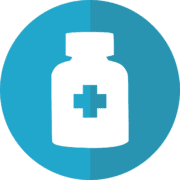8 Tips To Help You Manage Your Medications
For many ailments, treatments most often involve some type of medication. Whether it’s an antibiotic to treat an infection, a statin to control cholesterol, or even a simple daily aspirin to reduce the risk of heart attack, we take the medications our providers recommend and hope for the best.
Painkillers, statins, sleeping pills, and other commonly prescribed medications all have their proper place in managing our health but can have unintended side effects. It is the provider’s responsibility to carefully explain what to expect from taking a particular drug.
Routinely evaluating prescriptions is extremely important, especially for older adults whose bodies are less efficient at metabolizing and clearing medications from the bloodstream, which can increase the risk of being overmedicated. Those who take multiple medications must be particularly aware of possible side effects and interactions with other drugs.
Here are 8 important tips to help you safely manage your medication intake.
1) Keep a list of all the medications and supplements you are taking, the prescribed dosages for each, why you are taking them, and the prescribing provider. Provide a copy to a family member, friend, or caretaker and keep a copy of this list in your wallet or on your refrigerator in case of an emergency.
2) Review your medications with your provider on a regular basis to ensure that the medications and doses are still appropriate.
3) Report any new symptoms you are experiencing as a result of taking a new medication to your provider as soon as they occur.
4) Be sure to tell your provider about all of the herbal remedies and nutritional supplements you are taking as they can interact with your prescribed medications.
5) Before you start a new medication, ask your provider about any potential side effects or interactions of your medications, medicinal herbs, and supplements.
6) If your medication seems ineffective, make sure to speak up so your provider can reconsider the drug or dosage.
7) Missing your meds may trigger unexpected symptoms or side effects so make sure to take your medications as directed to avoid complications.
8) If at all possible, use the same pharmacy for filling your prescriptions. This allows the pharmacist to determine if there are any interactions or side effects you should be aware of – especially if multiple providers are prescribing for you.
In summary, be sure you know what medications you’re taking and why. If you have questions, ask! Your provider and pharmacist are important resources and can help guide and manage your medications.
We are here for you, and we want to help.
Our goal is to return you to optimal health as soon as possible. To schedule an appointment please call: 703-532-4892 x2
This article was originally published in March 2015. It was reviewed in October 2024.







